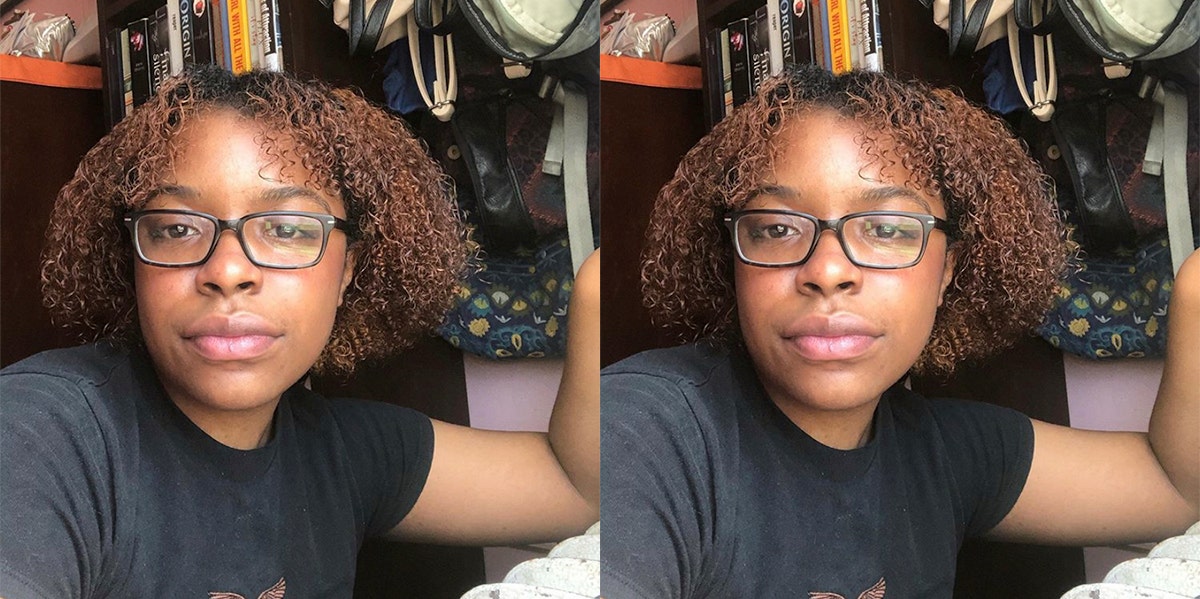How The #Filterdrop Beauty Campaign Inspired Me To Embrace My Flaws In A Photoshopped-Obsessed Society
It's important to not let others dictate your self-worth.
 Courtesy of Author Nia Tipton
Courtesy of Author Nia Tipton Instagram has always been a sort of black hole when it comes to self-confidence and trying not to feel insecure about one's body image.
It seems like every social media platform is almost curated to make anyone feel like they’re not enough – or they’re not doing enough in their own lives.
Spending too much time looking at other people, and comparing yourself to someone who you may not even know is extremely detrimental to your mental health.
It’s something I’ve struggled with — coming to terms with the fact that I’m not in competition with anyone.
RELATED: Artist Behind Viral 'Real Body' Photos Speaks Exclusively About What Filters Do To Women's Bodies
It doesn’t help that there is an excessive use of filters and Photoshop that completely distorts the reality of what it means to be beautiful.
Back in July of 2020, UK-based model and make-up artist Sasha Louise Pallari spearheaded a campaign called #filterdrop after noticing “different influencers advertising a makeup brand with a beautifying filter on.” The 28-year-old model took to Instagram in an 8-minute video explaining how this false advertising is contributing to low self-esteem.
In a video Pallari posted to her Instagram account, she showed the difference in how a filter can make someone look.
Following her campaign, Pallari has devoted her entire page to celebrating natural beauty and learning to accept every flaw, without the use of filters and over-editing.
I think it would have been amazing to have an account like this when I was back in high school and struggling with trying to figure out what beauty meant to me.
It can be truly harmful at such an impressionable age to only follow accounts of women whose entire feeds are edited pictures of themselves.
It made me feel horrible about my own self, and there were so many times when I would think about how I could alter my own appearance to look like a certain model or influencer.
The #filterdrop campaign is such an amazing tool for not only young girls but adult women as well. I don’t think it matters what age you are, but that it happens to all of us. I still find myself diving into a never ending cycle of scrolling through skinny models pages and just zooming in and staring at their photos.
It’s important to realize that everyone is different. Every body type is different, and no one is ever built in the same way.
It also shouldn’t matter what our bodies look like, because our bodies are just a shell to hold the things that truly matter — like our souls, and everything that makes us good inside.
As long as you’re treating your body with love and kindness, there shouldn’t be anyone on social media who makes you feel differently.
That trap of lurking on the IG pages of girls that you wish you looked like happens too frequently. And everytime I find myself in that headspace, it just feels even more crappy once I’m out of it.
RELATED: How To Be Genuinely Popular — In A Way That Doesn't Make You Grossly Fake And Elitist
It ruins my day as I spend hours upon hours wishing that I was skinner, and my hair was straighter.
It doesn’t even have to always do with looks, though. Sometimes I find myself lurking on other writers' pages, and feeling awful that my writing isn’t as good as theirs, or my poetry isn’t as loved as theirs.
The #filterdrop campaign represents so much, which I think is why so many people are joining it, and paying attention to it.
It allows us – as humans – to take a step back, and watch where our thumbs are leading us to. It’s a subtle way for us to be more intentional with what we do on social media and who we follow. It’s about how we are spending our time when looking at other people’s social media accounts.
I stopped following people who made me feel insecure, and started following people who uplift me and make me feel happy when I scroll down my feed.
You shouldn’t ever be following people who make you feel like crap for just being you. And it’s okay to learn how to forgive yourself and those self-loathing thoughts.
Something I’ve learned throughout this is that we are not immune to these feelings, we’re only human and these thoughts happen.
What matters is making sure we don’t stay in that mindset for too long, and that we realize just how special individuality truly is.
Nia Tipton is a writer living in Chicago. She covers pop culture, social justice issues, and trending topics. Follow her on Instagram

